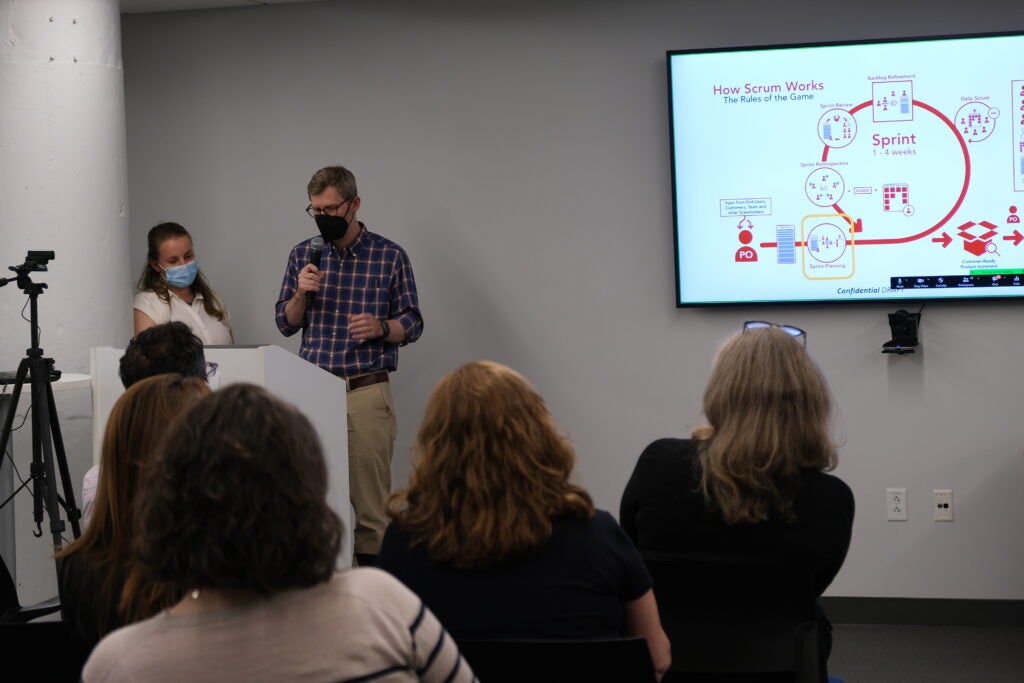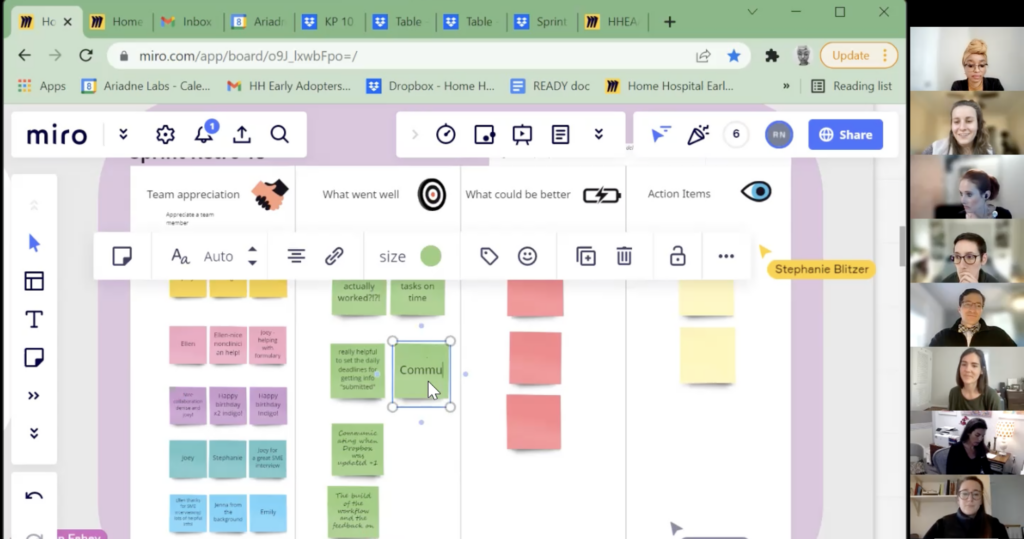How a new initiative applied the Scrum methodology to develop 20 tools in 40 weeks
Around the world, hospitals are increasingly interested in establishing home hospital care programs that can expand a system’s capacity and provide measurable benefits to many patients. A 2020 study found that, compared to a typical hospital admission, home hospitalization reduced cost, health care use, and readmissions, and increased physical activity for patients. On November 25, 2020, the Centers for Medicare and Medicaid Services issued the Acute Hospital Care at Home waiver that creates a payment mechanism for home hospital, paving the way for more than 250 hospitals in 37 states in the U.S. to adopt home hospital programs. However, successfully launching such programs requires a huge investment of time and energy. There are numerous factors to consider, such as personnel, technology, and communication needs. Systems are needed for determining which patients are a good fit, how to administer medications, what to do if symptoms worsen, and more.
In an effort to ease these burdens, Ariadne Labs and CaroNova, a health innovation incubator for the Carolinas, launched the Home Hospital Early Adopters Accelerator earlier this year.
The first of its kind, the Accelerator brought together 91 representatives from 18 health care institutions throughout the U.S. and South Africa to apply the Scrum methodology – a framework often used in software and tech industries – to health care innovation. Working together, Accelerator participants rapidly designed and tested a set of 20 tools health care institutions would need to develop and launch their own home hospital programs. Tools ranged from criteria for determining which patients are a good fit for home hospital to creating workflows for admissions, IV medications, and care escalation, to solutions for software, food services, and oxygen use, among others.
“Our goal was to convene an ultrafast team of early home hospital adopters to create a fused network of places that are collectively learning and moving fast,” said David Levine, MD, MPH, MA, who led the Accelerator for Ariadne Labs. “It was an enormous success. The team consistently remarked that they accomplished in one week what would normally have taken one month or more.”
While Ariadne Labs has a long history of developing solutions to some of health care’s thorniest problems, the application of Scrum brought a fresh approach to health care innovation. “The Scrum process creates a framework to complete work in a highly efficient way. It is an adaptable agile methodology, and we wanted to see if we could bend it to our accelerator concept,” said Levine.
Members of the Accelerator held regular meetings and intensive “sprints,” which are one- to two-week periods dedicated to accomplishing a certain task. Each sprint brought together different team members with different areas of expertise, allowing, for example, a member of the hospital’s IT department to contribute to a technology-focused solution, and a pharmacist to contribute to a controlled substance workflow. In daily check-ins, teams would discuss progress on their tasks and address impediments.
“The power of collaboration across the country and world has really been phenomenal,” said Stephanie Blitzer, Project Coordinator for the Home Hospital program at Ariadne Labs. “When you put in place the right framework for people to participate, you can produce results.”
Accelerator team members found that Scrum methodology complements Ariadne Labs’ own development process, the Ariadne Arc, which includes three key phases: design, test, and spread. “Scrum can help teams accomplish their project goals inside of the Arc,” Levine said.
As teams developed the products, the participating health systems were testing them in real time at their own facilities, allowing for rapid iteration and refinement.
These tools are now available to members of Home Hospital Early Adopters Accelerator Program. Going forward, participating programs will determine what adaptations are needed to make the tools more effective for their home hospital programs.
After the success of the Accelerator, team members say that Scrum could have benefits in other areas of health care innovation. “It’s not always easy, but it had great results for the health care institutions involved. These products are exactly what you need to make sure you’re treating your patients with the same level of care that they would have received if they were admitted in the hospital,” said Blitzer.





